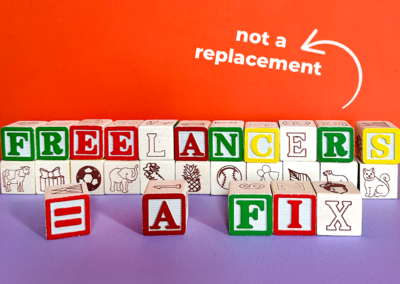“So, what do you think?” my manager asks. I shift uncomfortably in my seat as ten pairs of eyes look at me. I feel myself growing warm and trying to form words. I dislike meetings, and, even more so, I don’t particularly appreciate speaking during them. It’s not that I don’t have any ideas, but group settings where everyone is jockeying to hear themselves speak makes me want to retreat into myself. It was early in my career, and compounding my feelings was my introverted nature. It worked against me at times like these, and, at the time, I had not yet figured out how to manage it.
After the meeting, I approached my manager and asked him never to put me on the spot again. A gruff man, who was prone to being curt and a bit of a curmudgeon, agrees that it wasn’t our finest hour. He admitted to trying to goad me, but I wasn’t in the clear. While he was understanding, I wasn’t doing my career any favors.
My role then and today requires significant interaction with other people, so I had to figure it all out. Over the years, I’ve thought a lot about the times I’ve felt successful. I’ve had the good fortune of working with managers who have taken the time to understand and highlight each team member’s strengths. As an introvert, developing one-on-one relationships is especially important to me. Doing so has been key to making me feel included and comfortable at work. More importantly, it’s what helped me to find my voice. Here’s what you can do:
Make sure your manager knows you’re engaged. So often, check-ins with managers become a laundry list of the progress you’ve made on projects. However, here’s your chance to shine–share ideas, address issues that have gone unresolved, discuss what you’ve noticed. After all, you should be engaged at all times.
Ask to lead a project. Toiling away at your desk may get you acknowledgment, but it won’t get you accolades. Volunteer to lead a project, especially if it’s visible. Yes, it’ll require you to put yourself out there when all you want is to recharge quietly, but it’s a great way to contribute—on your terms. It may feel a little painful at first, but it will give you exposure to others in the company.
A week or two after the meeting where my manager called me out, we had a production company share storyboards for our Annual Meeting video presented to shareholders. We didn’t love it and no one had an idea about what to do. After the meeting, I asked my manager to give me a couple of days to develop and pitch a new story. He not only approved but allowed me to direct and produce the video. The annual meeting videos were used to highlight the company’s products and milestones and only used once. That year, our salespeople leveraged the video as part of their sales pitch. It was the highlight of my year as I got to flex my creativity. It’s an experience for which, after all these years, I’ve remained forever grateful.
Prepare for meetings. It’s a no-brainer, but I’ve found that there’s rarely a set agenda, especially with team meetings. Understanding what may be discussed in advance will give you a chance to prepare for what you want to share. Today, I use this tactic with junior team members. Providing insight into the agenda gives them a chance to prepare behind the scenes.
Again, I could not thrive without managers committed to creating an inclusive environment, so key to it all is establishing strong relationships. After all, that’s where introverts thrive, and that in itself is a great advantage!
Natasha’s Socials: LinkedIn
Editor’s Socials – Dominque Dajer: LinkedIn, Twitter, Instagram



